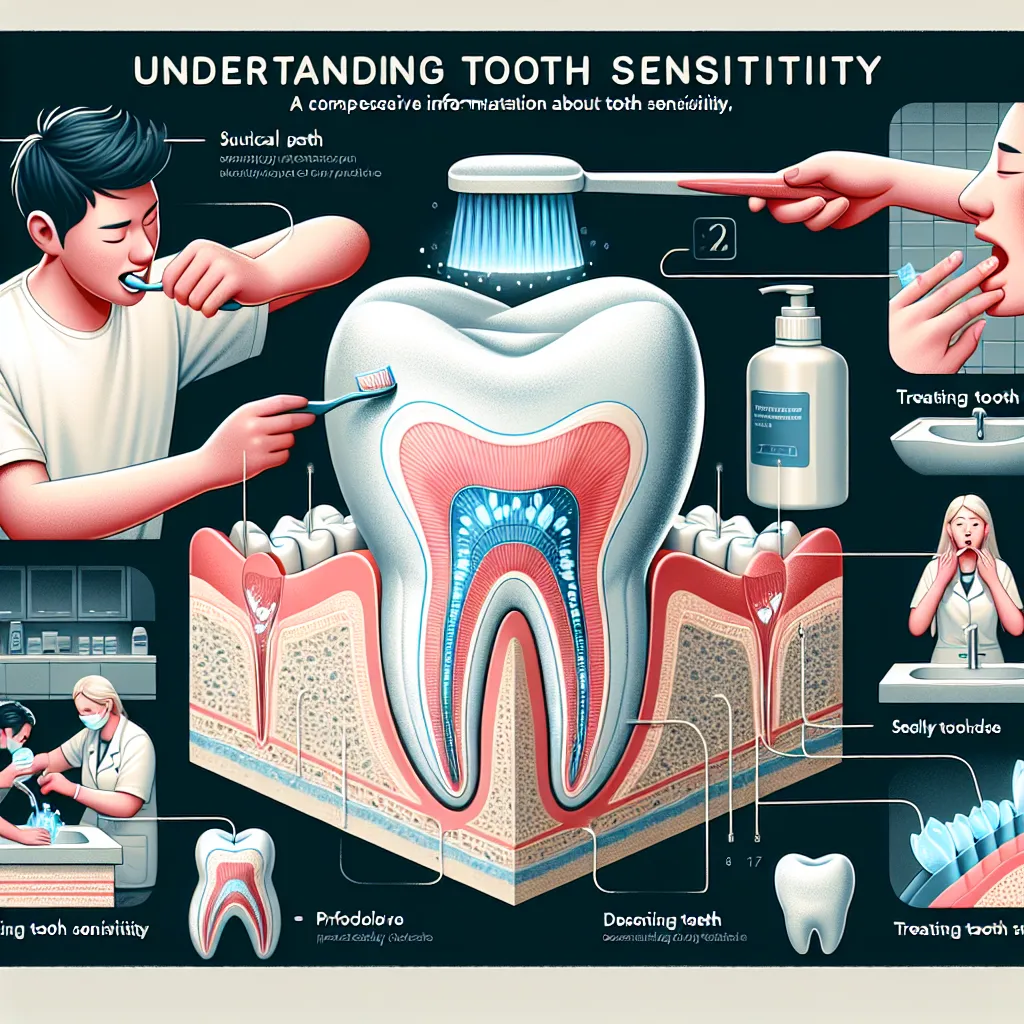
Understanding, Preventing, and Treating Tooth Sensitivity
Managing tooth sensitivity is crucial for maintaining oral health and overall well-being. In this post, we will delve into the various causes of tooth sensitivity, explore preventive strategies to minimize discomfort, and discuss treatment options to alleviate sensitivity and enhance oral comfort.
Understanding the Mechanisms Behind Tooth Sensitivity
Have you ever experienced a sudden jolt of pain while enjoying your favorite ice cream or sipping a hot cup of coffee? That’s tooth sensitivity making its presence known, disrupting the simple pleasures of life. But what exactly causes this discomfort, and how can we tackle it head-on?
1. The Enigma of Tooth Sensitivity Unveiled
At the core of tooth sensitivity lies the exposure of dentin, the sensitive layer beneath the tooth enamel. When the enamel wears down or gums recede, the dentinal tubules become exposed, creating pathways for external stimuli to reach the nerves inside the tooth. This direct access to nerve endings leads to those sharp, shooting pains that catch us off guard.
2. Unmasking the Culprits: Causes of Tooth Sensitivity
There are various factors at play when it comes to triggering tooth sensitivity. From aggressive brushing habits and acidic foods eroding the enamel to dental conditions like cavities, cracked teeth, and gum disease, the list is extensive. Not to forget, teeth grinding and even whitening products can also contribute to the sensitivity dilemma.
3. Solutions for Sensitivity: Navigating the Relief Pathway
Thankfully, managing tooth sensitivity is within reach with the right approach. Switching to a soft-bristled toothbrush, adopting a gentler brushing technique, and using desensitizing toothpaste are simple yet effective strategies. Additionally, incorporating a mouthguard for teeth grinding and seeking professional dental treatments can significantly alleviate sensitivity woes.
4. A Holistic Approach: Caring for Sensitive Teeth
Embracing a holistic dental care routine is key to combating tooth sensitivity in the long run. Regular dental check-ups, maintaining good oral hygiene, and following a balanced diet that is gentle on your enamel are fundamental steps. Remember, prevention is always better than cure when it comes to safeguarding your precious pearly whites.
Preventive Measures to Reduce Tooth Sensitivity
Are you tired of wincing every time you indulge in your favorite ice cream or hot coffee due to tooth sensitivity? Fear not, as there are preventive measures you can take to reduce this discomfort and enjoy your meals without hesitation.
1. Gentle Brushing Techniques
One of the primary causes of tooth sensitivity is enamel erosion, often exacerbated by aggressive brushing. Switch to a soft-bristled toothbrush and gentle brushing techniques to protect your enamel and reduce sensitivity.
2. Desensitizing Toothpaste
Utilize desensitizing toothpaste containing ingredients like potassium nitrate or strontium chloride to help alleviate tooth sensitivity. These toothpaste formulations work by blocking the transmission of pain signals from the tooth surface to the nerve.
3. Avoid Acidic Foods and Drinks
Acidic foods and beverages can contribute to enamel erosion and increase tooth sensitivity. Limit your consumption of citrus fruits, sodas, and wine, and remember to rinse your mouth with water after consuming them to neutralize the acid.
4. Fluoride Treatments
Visit your dentist for professional fluoride treatments to strengthen your enamel and reduce sensitivity. Fluoride helps remineralize the enamel, making it more resistant to external stimuli that can trigger sensitivity.
5. Custom Mouthguards
If you suffer from teeth grinding or clenching, known as bruxism, consider using a custom mouthguard at night to protect your teeth from excessive wear and reduce sensitivity. Your dentist can create a personalized mouthguard to fit your teeth comfortably.
Effective Treatment Options for Tooth Sensitivity
Tooth sensitivity is a common dental issue that affects many people worldwide. The discomfort and pain associated with sensitive teeth can be quite distressing, impacting daily activities such as eating and drinking. However, there are effective treatment options available to help manage and alleviate tooth sensitivity, allowing individuals to enjoy their favorite foods and beverages without fear.
1. Desensitizing Toothpaste
One of the most common and effective treatments for tooth sensitivity is desensitizing toothpaste. These toothpastes are specially formulated to help block the transmission of sensation from the tooth surface to the nerve, helping to reduce sensitivity over time. Using desensitizing toothpaste regularly as part of your oral hygiene routine can significantly alleviate discomfort caused by sensitive teeth.
2. Fluoride Gel or Varnish
Fluoride treatments, such as gel or varnish applied by a dentist, can help strengthen tooth enamel and reduce sensitivity. Fluoride works by remineralizing the enamel, making it more resistant to external stimuli that cause sensitivity. Incorporating fluoride treatments into your regular dental check-ups can provide long-lasting relief from tooth sensitivity.
3. Dental Sealants
Dental sealants are thin protective coatings placed on the chewing surfaces of molars and premolars to prevent tooth decay and sensitivity. By sealing off the pits and fissures where bacteria can accumulate, dental sealants help protect the enamel and reduce sensitivity to hot, cold, and sweet stimuli. This preventive treatment can be particularly beneficial for individuals prone to tooth sensitivity.